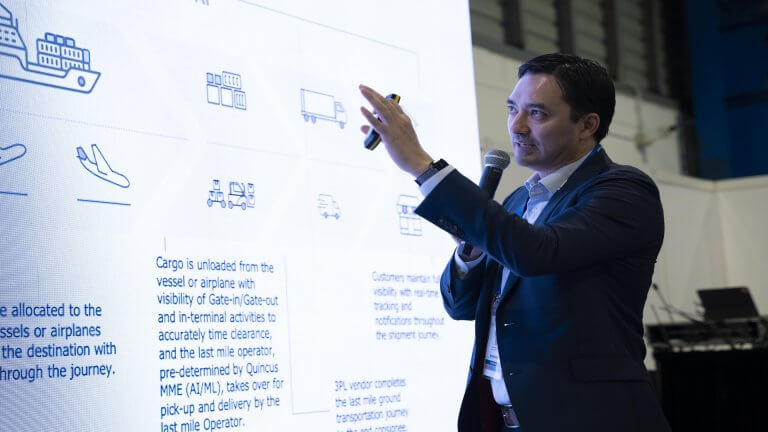
The AI-driven path to sustainable logistics
“Logic will get you from A to Z; imagination will get you everywhere.”
― Albert Einstein
Do you find yourself waiting over two days to have items shipped to your door? In today’s day and age? While we’ve come to rely on immediate and low-cost deliveries over the past few years, delivery expectations aren’t an easy feat for supply chains, nor are they sustainable—at least this is the case without sustainable logistics technology and AI.
Here are some challenges with fast delivery expectations and what’s being done to meet them.
Shifting consumer demands for fast and free delivery
The best supply chain and logistics companies like Amazon changed customer expectations forever. Today, customers demand faster fulfillment, smaller order sizes, and greater customization. Oh, yeah—and it should be free or close to it. That’s quite an adjustment for businesses of all types who have had to ramp up their operations to meet demand.
At Quincus, we develop a logistics operating system (OS) that helps our customers—whether carriers or e-commerce corporations—deliver on promises of speed, efficiency, and reliability. By empowering artificial intelligence (AI), our improvements to operational efficiency drive down costs—both in terms of operational and environmental costs.
The environmental impact of fast delivery
While we, as consumers, have endless wants and needs that require service, worldwide supply chain and logistics networks pose a threat to our planet.
- The transport sector is the most significant contributor to greenhouse gas emissions within the European Union, accounting for around 28% of total emissions.
- Consider also, the last year before COVID, when worldwide flights produced 915 million tons of carbon dioxide.
- At almost 1.1 billion tons, shipping accounted for 3% of the world’s total carbon emissions.
It’s crucial for all stakeholders to design sustainable logistical networks and infrastructures.
Quincus’ commitment to driving sustainable logistics solutions
Quincus AI always incorporates sustainability in its innovation process. From better routing, address verification, reduced miles and resources, and more, our platform enables more efficient and sustainable operations.
This article marks the beginning of a series on innovation, logistics, and sustainability. We’ll analyze multiple aspects of sustainability and the various impacts of our algorithms, models, and products.
Stay tuned for the next part of our series, which will focus on the role of AI-driven optimization in creating sustainable, green supply chains. Then, we’ll explore the intriguing and vital function of simulation in the coming years.
Part 2
Learn more about Quincus’ sustainable logistics solutions.
Generate your solution
Written by Christophe Pennetier
Continue reading:
Part 1: The AI-driven path to sustainable logistics
Part 2: The AI-driven path toward sustainable logistics: The impact of optimization
Part 3: The AI-driven path to sustainable logistics: The promises of simulation
Part 4: The AI-driven path to sustainable logistics: A new paradigm in logistics
Subscribe to keep up with our latest news









